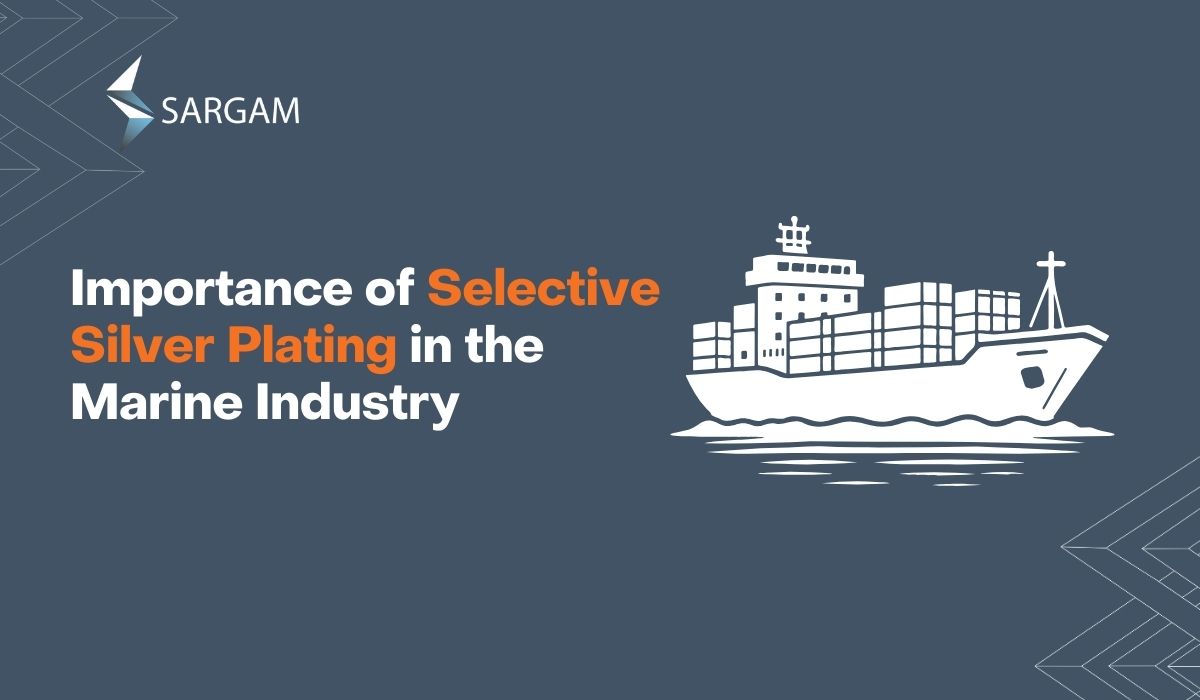The marine industry operates in one of the harshest environments on earth. Constant exposure to saltwater, high humidity, and extreme mechanical stress makes every component vulnerable to corrosion and wear. In such conditions, reliability becomes the most important aspect. One solution that has been quietly shaping marine engineering is selective silver plating.
Unlike conventional Full plating, tank plating, selective plating allows precision coating of metals exactly where protection or conductivity is needed. For ships, offshore rigs, and marine equipment, this process is a game-changer combining durability, performance, and speed of repair.
What Selective Silver Plating Means for Marine Engineering
Selective silver plating is a controlled method of depositing silver onto critical areas of a component without immersing the entire part. Using portable tools, it can be applied on-site, directly on a vessel, saving both time and cost. The result is a dense, highly adherent coating that improves resistance to corrosion, reduces galling, and enhances electrical conductivity.
For the marine industry, where downtime is expensive and repairs are often urgent, this flexibility is invaluable.
Key Advantages in Marine Applications
On-site repair and minimal downtime
Propeller shafts, turbine casings, and bearing seats can be plated without dismantling or shipping them to a workshop. Maintenance happens at the dock, keeping vessels operational.
Superior corrosion resistance
Silver plating creates a protective barrier against saltwater exposure. This is especially important for hydraulic systems, pump components, and valves where failure can halt operations.
Anti-galling and wear resistance
Fasteners, bushings, and seals plated with silver perform better under high loads and temperature variations, reducing seizure and wear in marine machinery.
Electrical and thermal conductivity
Silver’s unmatched conductivity ensures efficient performance in electrical connectors and marine power systems where consistent transmission is critical.
Sustainable and efficient process
Selective plating consumes less chemical and energy compared to bulk methods, aligning with the growing demand for eco-friendly marine solutions.
Applications Across the Marine Industry
Propulsion systems – shafts, propellers, and turbine components restored with silver plating last longer under constant stress.
Hydraulic and pumping equipment – selective coating protects against corrosion and erosion, extending service life.
Fasteners and fittings – anti-galling properties prevent damage during assembly and disassembly in high-pressure marine environments.
Electrical systems – silver plating on connectors ensures reliable current flow even in salt-rich conditions.
Antifouling research – new nickel-silver composite coatings are being explored to resist marine biofouling, opening future possibilities.
How It Compares with Other Methods
Versus tank plating – selective plating is faster, portable, and eliminates the need to coat unnecessary areas.
Versus thermal spray – silver deposits form a metallurgical bond without distortion, offering superior precision and strength.
This makes selective plating not just an alternative but often the preferred method for mission-critical marine repairs.
Why This Matters for Sargam Industries
For over four decades, Sargam has built expertise in precision electroplating for demanding industries like switchgear, healthcare, telecom & aerospace. The same strengths, safety, precision, and innovation position Sargam to bring value to the marine industry. By adopting and advancing selective silver plating, Sargam can help shipyards, fleet operators, and offshore engineers reduce downtime, improve performance, and achieve sustainable operations.
Conclusion
The ocean does not forgive weak links. Every component must endure corrosion, friction, and constant motion. Selective silver plating provides the marine industry with exactly what it needs: strength, reliability, and longevity, applied with precision and efficiency..

